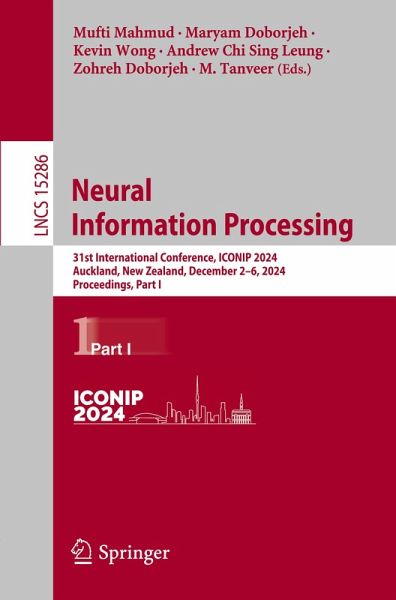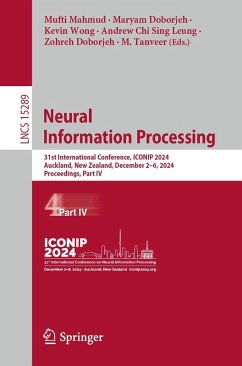
Neural Information Processing
31st International Conference, ICONIP 2024, Auckland, New Zealand, December 2-6, 2024, Proceedings, Part I
Herausgegeben: Mahmud, Mufti; Doborjeh, Maryam; Wong, Kevin; Leung, Andrew Chi Sing; Doborjeh, Zohreh; Tanveer, M.

PAYBACK Punkte
28 °P sammeln!
The eleven-volume set LNCS 15286-15296 constitutes the refereed proceedings of the 31st International Conference on Neural Information Processing, ICONIP 2024, held in Auckland, New Zealand, in December 2024.
The 318 regular papers presented in the proceedings set were carefully reviewed and selected from 1301 submissions. They focus on four main areas, namely: theory and algorithms; cognitive neurosciences; human-centered computing; and applications.
The 318 regular papers presented in the proceedings set were carefully reviewed and selected from 1301 submissions. They focus on four main areas, namely: theory and algorithms; cognitive neurosciences; human-centered computing; and applications.












